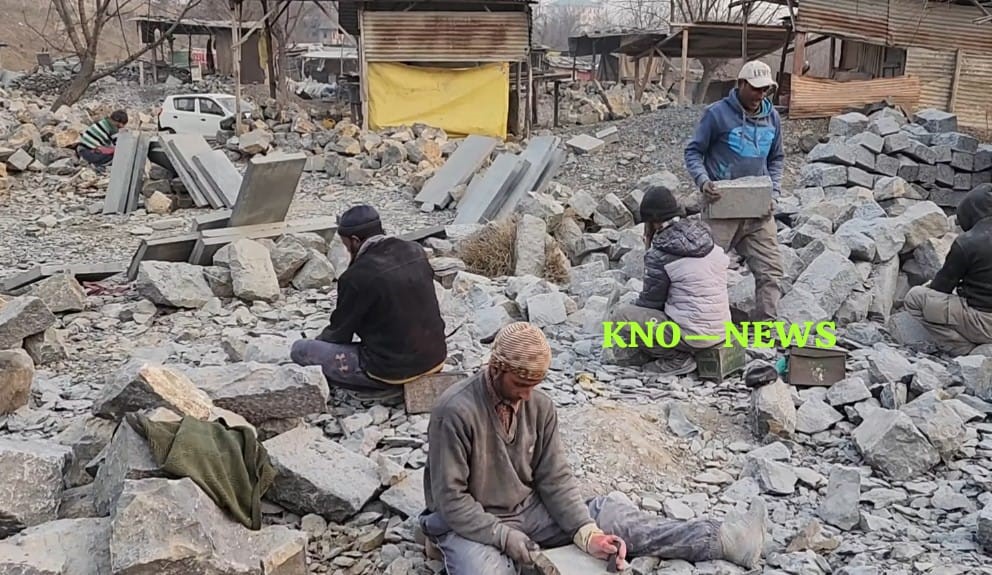By Rehan Qayoom Mir
The time-honored tradition of Sangh Tarashi in Kashmir, a generations-old craft that epitomizes the essence of Kashmiri craftsmanship, is perilously fading away, leaving artisans deeply concerned about their future. This delicate form of wirework, once a cultural heritage that originated some 100 years ago, is facing a stark decline due to a lack of necessary support and access to raw materials.
Stone carving, an integral part of Sangh Tarashi, gained cultural significance over the years. The extraction of stones was regulated, with designated sites and the payment of royalties to the government. However, in 2016, the government imposed a ban on stone extraction, dealing a severe blow to the craft’s sustainability.
As a result, the practice is gradually fading away, and artisans find themselves struggling in the absence of a robust support system. Gulam Nabi Dar from Sampora in Pampore expressed his concerns, stating, “It takes us about 2 to 3 hours to craft a single stone. It is all based on the craftsmanship of the individual.” These specially crafted stones are integral to various products, including Hamam, in Kashmir.

Reflecting on the past, Dar lamented, “In the past, our work was at its peak. But as time passed, the demand decreased, and our work suffered a lot. Due to the ban on stones, our work also suffers.” He pointed out that the influx of outsider materials like tiles further exacerbated their challenges. Urging the government to intervene and safeguard the craft, he added, “It becomes very difficult for us to continue the traditional craft as we have to get stones from Sadarkote, Ladoo, and other places. We have only old craftsmen, and no young people are reluctant to take up the craft.”
Another artisan emphasized that, while they used to secure government projects in the past, the scenario has changed. “The traditional stone-crafted work is beautiful, and when installed in a house or wall, it also gives shine and is very strong as compared to the stones exported from outside J&K.” He earnestly appealed to the government, saying, “We would like to request the government to pay attention to our plight and help us improve our work.”
According to him, the ban on carving stones from mountains and the reliance on procuring Rajasthani stones for Hamam have significantly contributed to the decline of the trade. The plea from these artisans echoes the urgency for governmental support to preserve and revitalize the fading artistry of Sangh Tarashi in Kashmir. (KNO)
